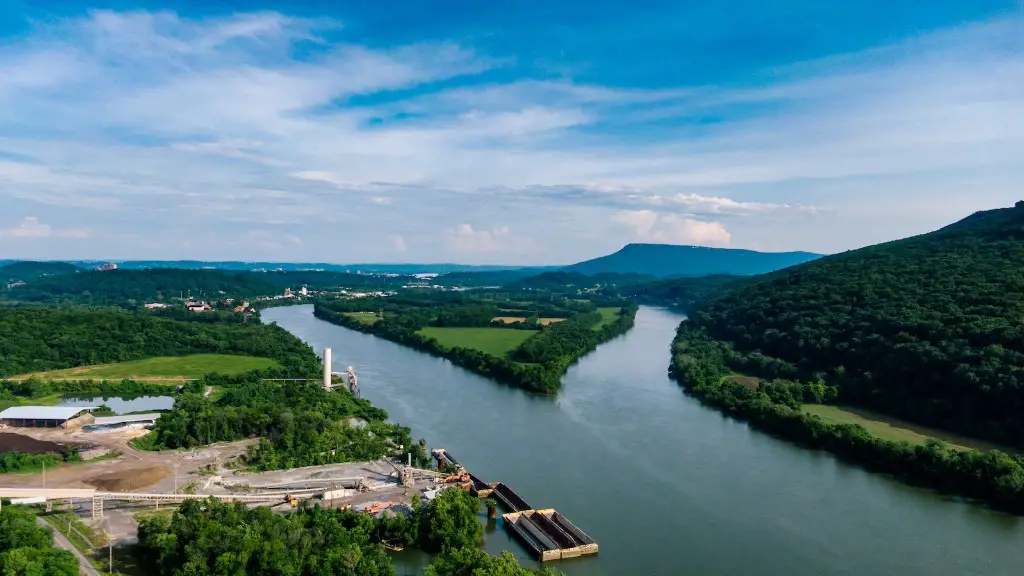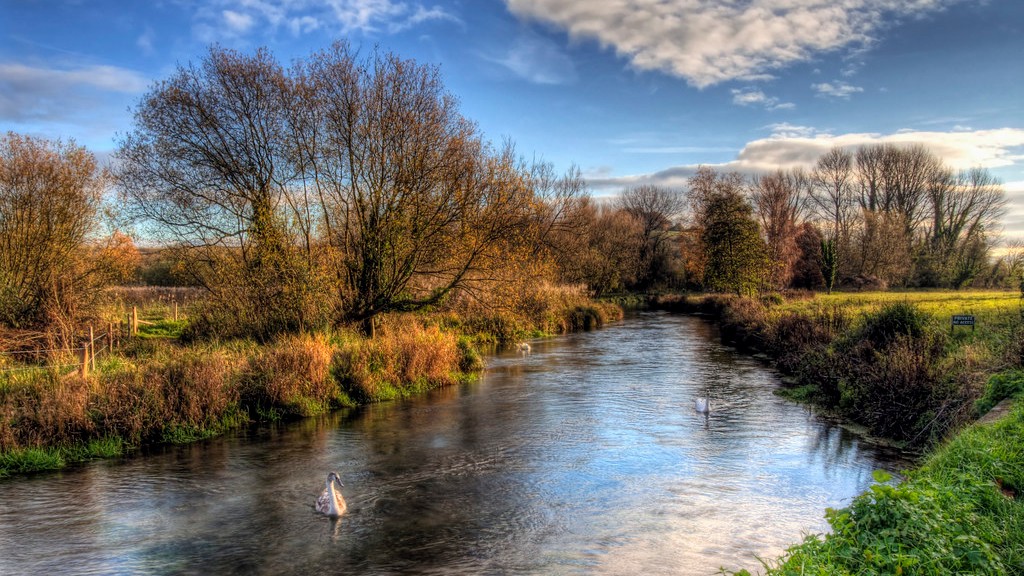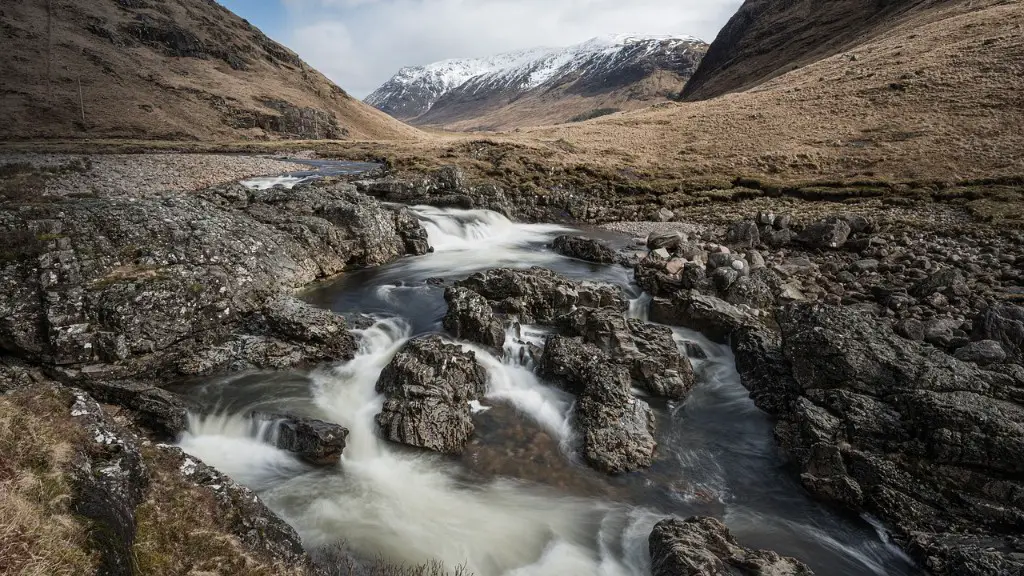Lack of Flood Prevention
The Yangtze River has a long history of flooding. During ancient times, there were few flood prevention measures in place. The heavy population of the Yangtze River Basin had no means to predict, prepare for or control the floods. The floods had a devastating impact to those living by the river, resulting in the loss of life, homes and livelihoods.
The floods caused great destruction to the areas around the Yangtze River. Not only were people affected, but crops were lost and important infrastructure such as roads and bridges were also badly damaged. In addition, the landscape of the river bank was often altered due to the force of the floodwaters.
Although there have been vast changes to the environment since ancient times, the flooding of the Yangtze River is still an issue today. It has been estimated that the river floods every 30 years and causes a great deal of destruction. Although measures have been taken to reduce the impact of floods, such as the construction of flood control technology, the river’s unpredictability is still a cause for concern.
Analysis by Experts
Experts have analysed the unpredictability of flooding in the Yangtze River Basin. Research suggests that the floodwaters rise quickly when heavy rains occur and this often results in devastating floods. As the floods are rapid, the basin is unable to drain the floodwaters in a timely manner.
In recent times, the unpredictability of the flooding has increased further due to changes in land use in the basin. It is believed that deforestation, urbanisation and changes to agricultural practices have all had an impact on the unpredictability of flooding. It is also suggested that climate change has had a negative impact on the flooding, as it has caused more intense and frequent rainfall over the past few decades.
Furthermore, experts have posited that the unpredictability of floods in the Yangtze River Basin is due to the complex hydrological system of the basin. The complexity of the system means that it is extremely difficult to predict how the floodwaters will behave and when there will be any flooding at all.
Prevention Measures
Despite the unpredictability of flooding in the Yangtze River Basin, a number of measures have been taken to reduce the impact of flooding in the basin. These include the construction of flood control dams and dykes, which help to divert the floodwaters away from vulnerable areas. In addition, the government has implemented strict policies regarding deforestation and soil erosion in the basin.
Furthermore, experts have also implemented a number of methods to predict and warn people of impending flooding. These include using satellite imagery and mathematical modelling to monitor the water levels in the basin. By doing this, advance warning can be given to those living along the river of impending floods.
Tools such as early warning systems and flood control dams are essential in helping to reduce the impact of flooding in the Yangtze River Basin. The government has also developed a number of policies to help those affected by flooding, such as providing financial aid for rebuilding homes and providing food aid for those affected.
Evolution of Landscape
The landscape of the Yangtze River Basin has changed a considerable amount since ancient times. This can be attributed to the effects of flooding and to the changes in land use that have occurred since ancient times. Whilst deforestation and urbanisation have had an impact on the landscape of the basin, flooding has also led to the formation of new landscape features such as lakes and marshes.
It is likely that flooding has been responsible for the constant changes in the landscape of the basin, and this is why the floods in the Yangtze River Basin have been so difficult to predict. In addition, flooding has caused changes to the sedimentation process in the basin, as large amounts of sediment are washed downstream during a flood.
Effects on Ecosystem
The flooding of the Yangtze River can have serious implications on the ecology and environment of the basin. Flooding can lead to an increased spread of water-born diseases and can also have an impact on the aquatic life in the basin. In addition, flooding can lead to a decrease in food supplies, as crops may be flooded or washed away.
The Yangtze River Basin is home to a wide variety of species, and flooding can have a devastating effect on some of these species. For example, freshwater turtles in the basin are particularly vulnerable to flooding, as it can cause them to become dehydrated and die. Furthermore, some amphibian species in the basin are also affected by floods, as the extra water can cause their egg and larval stages to be overwhelmed or washed away.
In general, the flooding of the Yangtze River not only affects people, but has a considerable impact on the environment and wildlife in the basin. Although some species can benefit from floods, such as fish and aquatic plants, the effects on other species can be devastating.
Implications on Economy
The unpredictability of floods in the Yangtze River Basin can have serious implications on the economy of the region. As noted above, floods cause a great deal of destruction to infrastructure, crops and homes. This can have a negative impact on the people living in the region, as their livelihoods are affected. It can also cause disruption to industry and transportation, as roads and railways may need to be repaired.
Furthermore, floods can have a considerable impact on tourism in the region, as people may be less likely to visit an area that has recently been flooded. In addition, flooding can lead to the displacement of people, which can be costly for the local and national governments.
In recent years, steps have been taken to reduce the impact of floods in the region, such as the development of flood control technology. However, further research and investment is needed to minimise the impact of flooding in the basin.
Environmental Organizations
Environmental organisations have campaigned to reduce the effects of flooding in the Yangtze River Basin. Such organisations have sought to raise awareness of the issue, and have encouraged the development of flood control measures in the basin. Such measures include the protection of wetlands and swamps, which are important for slowing the flow of floodwaters.
In addition, environmental organisations have campaigned for the development of better warnings systems for flooding, and for the protection of species of wildlife that are threatened by flooding. Such organisations have also sought to raise awareness of the importance of preserving the river and its wildlife, in order to reduce the impact of flooding.
Community Actions
The people of the Yangtze River Basin have also taken action to reduce the effects of flooding. In recent years, people have been more aware of the need to protect their homes, as well as taking steps to prepare for flooding. Flood-prone areas have been reinforced with sandbags and other materials to prevent flooding.
In addition, the people of the region have also taken steps to conserve water. People have used traditional methods to capture and store water, as well as building small dams in order to reduce the impact of floods. Such measures can help to reduce the amount of sediment that is washed away during floods.
Furthermore, the people of the region have sought to raise awareness of the damaging effects of flooding, and to engage with the government and environmental organisations to tackle the issue. Local initiatives have been set up to help those affected by floods, including providing food and shelter, as well as offering educational programmes about flood prevention.
Cultural Impacts
The flooding of the Yangtze River has had a considerable impact on the culture of the region. Ancient Chinese mythology described floods as a punishment from deities, and floods were often linked to divinities of the Yangtze River Basin. As such, flooding had a spiritual significance.
In modern times, flooding has been seen as a natural disaster with devastating effects. As such, people have sought to protect themselves from the effects of flooding. The festivals and rituals that were once associated with flooding have largely ceased, as there is now a fear of the consequences of flooding.
The unpredictability of flooding has caused people in the Yangtze River Basin to live in fear of the next flood. People have sought to protect themselves from flooding, but it is difficult to predict when a flood will occur and when it will be too late.
Flood Control Policies
In recent years, the Chinese government has implemented a number of policies designed to reduce the impact of flooding in the Yangtze River Basin. These policies have included crackdowns on illegal deforestation and soil erosion, as well as introducing strict regulations regarding the construction of flood control technology.
Furthermore, a number of flood prevention measures have been implemented in recent years. These include the installation of early warning systems, as well as the construction of flood control dams and dykes. In addition, the government has also provided financial support for people affected by flooding.
Although some progress has been made in reducing the impact of flooding on the Yangtze River Basin, the unpredictability of flooding is still an issue. It is hoped that further research and investment in flood prevention technologies will help to minimise the effects of flooding in the region.





